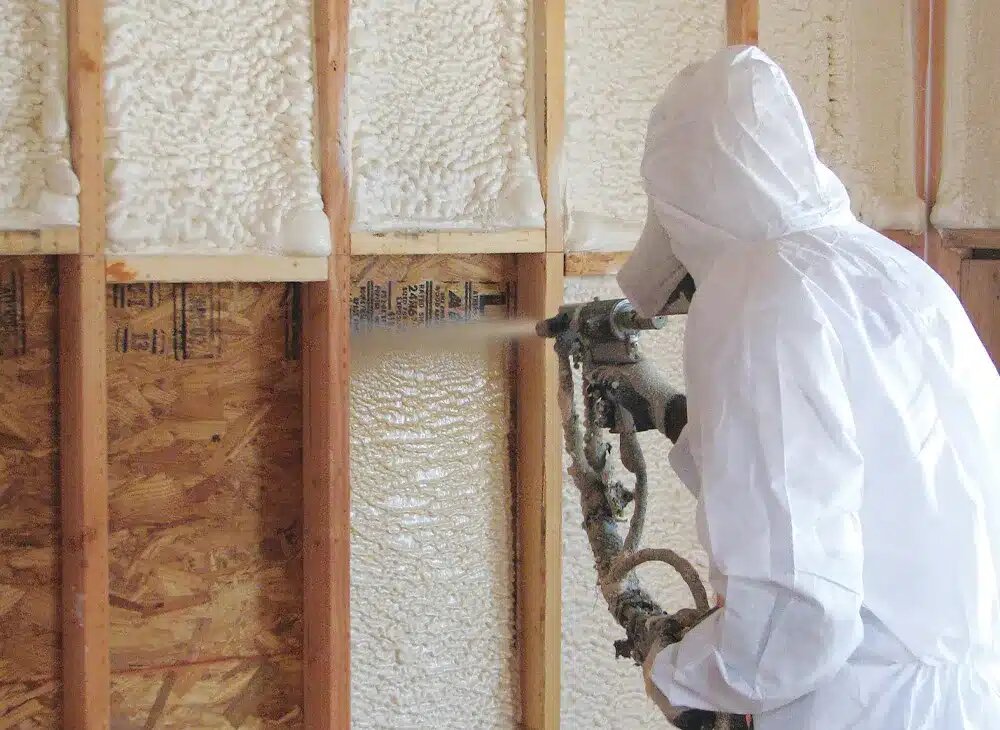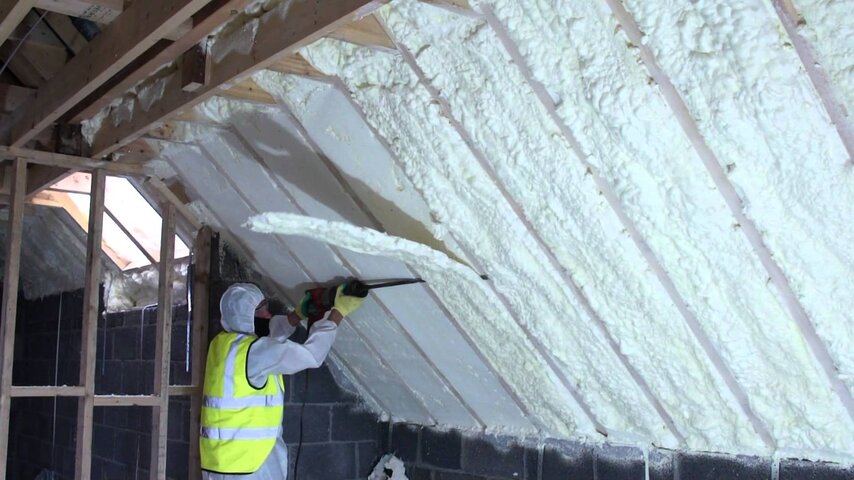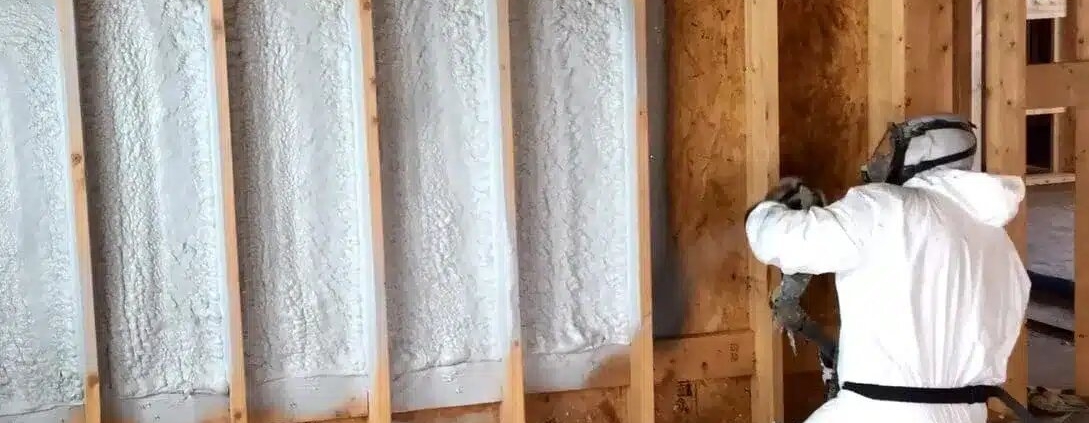6 Ways Closed-Cell Spray Foam Saves Money Beyond Utility Bills in Southbridge, MA
When homeowners in Southbridge, Massachusetts, consider upgrading to closed-cell spray foam insulation, the primary motivation is almost always the promise of significantly lower utility bills. While those energy savings are indeed substantial, they represent only a fraction of the total financial benefits this high-performance material provides. Closed-cell spray foam in Southbridge, MA saves homeowners money in numerous other ways by preventing costly moisture damage, strengthening the home’s structure, allowing for smaller HVAC systems, deterring expensive pest infestations, improving the home’s resale value, and even qualifying for tax credits and rebates. These benefits combine to create a powerful return on investment that goes far beyond the monthly energy bill.
However, focusing only on energy savings means missing the bigger picture of how a high-performance insulation system creates a more durable, resilient, and valuable home. This guide, with insights from building science experts, will explore the six key ways that closed-cell spray foam delivers long-term financial value.
1. Preventing Costly Moisture, Mold, and Rot Repairs
Moisture is the single biggest threat to a home’s structure, and the resulting damage can be incredibly expensive to repair. In a climate like Southbridge’s, with its cold winters and humid summers, the risk of condensation inside walls and attics is high. When warm, moist air leaks into a cold wall cavity, it can lead to mold growth and wood rot that can compromise the home’s framing.
Closed-cell spray foam is a powerful defense against this. It is a waterproof material and a certified vapor barrier, which means it completely stops the movement of moisture-laden air. By preventing condensation, it eliminates the conditions necessary for mold and rot to occur, saving homeowners from the potentially catastrophic costs of remediation and structural repairs. According to industry data, the average mold remediation project can cost several thousand dollars.
2. Adding Structural Strength and Resilience
A home that is structurally stronger is a more durable and valuable asset. Unlike traditional insulation materials that offer no structural support, closed-cell spray foam actually enhances a home’s strength. Its dense, rigid structure and powerful adhesive properties effectively “glue” the framing and sheathing of a wall or roof together into a single, strong unit.
Independent testing has shown this can increase a wall’s racking strength by up to 300%. This added rigidity helps the home to better withstand the stresses of heavy snow loads and the high winds that can accompany a classic New England Nor’easter. This can reduce the need for storm-related repairs and may even lead to lower homeowner’s insurance premiums in some cases.
Bonus Tip: This structural enhancement is particularly valuable when renovating an older home, as it can add modern strength and rigidity to a structure that was built to less stringent codes.
3. Reducing the Size and Cost of HVAC Equipment
One of the most significant but often overlooked savings comes when it’s time to replace a home’s heating and cooling system. Because a home insulated with closed-cell spray foam is so airtight and thermally efficient, its heating and cooling loads are dramatically reduced.
This allows for the installation of a much smaller, or “right-sized,” HVAC system. A smaller furnace or air conditioner is not only less expensive to purchase upfront, but it is also more efficient to operate, as it will run in the longer, more stable cycles it was designed for. An oversized unit in a well-insulated home will “short cycle,” which is highly inefficient and poor at dehumidifying. The ability to install a smaller HVAC system can save a homeowner thousands of dollars on the initial equipment cost.

4. Avoiding Expensive Pest-Related Damage
Pests like carpenter ants, termites, and rodents can cause significant damage to a home’s structure and can be very expensive to eradicate. These pests are drawn to the soft, warm, and often damp environment provided by traditional insulation materials like fiberglass and cellulose.
Closed-cell spray foam is an inert plastic that offers no food value to pests. Its dense, hard structure is also a formidable physical barrier that they cannot chew or tunnel through. By sealing the small cracks and gaps in the foundation that are the primary entry points for pests, spray foam helps to “armor” the home against infestations, saving homeowners the cost of exterminators and the repair of pest-related damage.
The Comprehensive Financial Benefits of Closed-Cell Foam
| Financial Benefit | Standard Insulation (Fiberglass) | Closed-Cell Spray Foam |
|---|---|---|
| Moisture/Mold Risk | High; can lead to expensive remediation. | Very Low; acts as a vapor barrier. |
| Structural Integrity | None; offers no support. | High; adds significant rigidity. |
| HVAC Sizing | Requires a larger, more expensive unit. | Allows for a smaller, right-sized system. |
| Pest Control | Vulnerable; provides nesting material. | Excellent; is a physical and inedible barrier. |
| Resale Value | Standard | Higher; a key feature for savvy buyers. |
| Incentives | Minimal | Often qualifies for tax credits and rebates. |
5. Increasing the Home’s Resale Value
In a sophisticated real estate market like eastern Massachusetts, homebuyers are increasingly looking for high-performance homes. An upgrade to closed-cell spray foam is a major selling point that can directly translate to a higher resale price and a faster sale.
A home insulated with spray foam can be marketed as:
- More Energy Efficient: With verifiably lower utility bills.
- More Comfortable: Free of drafts and hot/cold spots.
- More Durable: Protected from moisture, mold, and pests.
- Healthier: With better indoor air quality due to the air seal.
These are powerful differentiators that make a property more attractive to discerning buyers who are willing to pay a premium for a higher quality, lower-maintenance home.
Bonus Tip: Be sure to keep all the documentation from your insulation project, including the contract and any energy audit reports. Providing these to your real estate agent and the home appraiser is the best way to ensure you get the full market value for your investment.
6. Qualifying for Rebates and Tax Credits
Both the federal government and state programs like Mass Save® often offer significant financial incentives for homeowners who make energy-efficiency upgrades. Because closed-cell spray foam is a high-performance material that delivers substantial energy savings, it frequently qualifies for these programs. These incentives can come in the form of direct rebates, no-interest loans, or tax credits, which can help to significantly offset the initial cost of the project, making the return on investment even faster. A knowledgeable local contractor will be up-to-date on all the available programs and can help a homeowner with the application process.

Key Factors to Consider
- Professional Installation is a Must: All of these benefits are contingent on a high-quality installation. This is not a DIY project.
- It’s a System, Not a Single Product: The best results are achieved when spray foam is part of a comprehensive home performance strategy that also considers ventilation and the condition of the HVAC system.
- The Upfront Cost is an Investment: While the initial cost is higher than for other materials, the combination of energy savings, avoided repair costs, and increased home value makes it a sound and strategic long-term financial decision.
Frequently Asked Questions
Is closed-cell spray foam worth the extra cost over open-cell?
For many applications, especially in a cold and humid climate like New England’s, yes. The added benefits of being a vapor barrier, its higher R-value per inch, and its structural enhancement often make it the superior long-term investment.
Can this help with ice dams?
Yes. By applying closed-cell foam directly to the underside of the roof deck, you create an unvented “hot roof.” This keeps the entire roof surface cold, which prevents the snow from melting and refreezing at the eaves, the process that causes destructive ice dams.
How do I find out about available rebates?
The best source of information is a qualified local contractor or the website for your state’s energy efficiency program, such as Mass Save®. They will have the most current information on all available incentives.
Will my homeowner’s insurance go down?
In some cases, yes. Some insurance companies offer discounts for homes that have features that make them more resilient to wind and water damage. It is worth a call to your insurance agent after the project is complete.
A Smarter Investment All Around
While the allure of a lower energy bill is powerful, the true financial case for closed-cell spray foam is far more comprehensive. It is an investment in a home that is cheaper to operate, stronger, healthier, and less expensive to maintain over the long run.
Get a Comprehensive Home Performance and Value Assessment
The best way to understand the full financial impact of a closed-cell spray foam upgrade on your specific home is to get a professional evaluation. An expert can assess your home’s vulnerabilities and provide a clear, detailed plan that outlines all the potential savings and benefits.
The team at Lamothe Spray Foam Insulation has a deep understanding of the building science and the financial advantages of high-performance insulation. They are experts in creating more valuable and resilient homes for their clients. To schedule a comprehensive consultation, they can be reached at (508) 847-0119 or by email at LamotheInsulation@gmail.com.
Author: Robert Lamothe, owner and lead installer of Lamothe Insulation, has been specializing in spray foam insulation, carpentry, and building science since 2002. His work is known for its precision, quality, and focus on long-term energy efficiency.
Reviewer: Ethan Taylor reviewed this article for clarity and accuracy. With 8 years of experience in the spray foam industry, he provided feedback to ensure the information is practical and trustworthy for homeowners.



Leave a Reply
Want to join the discussion?Feel free to contribute!